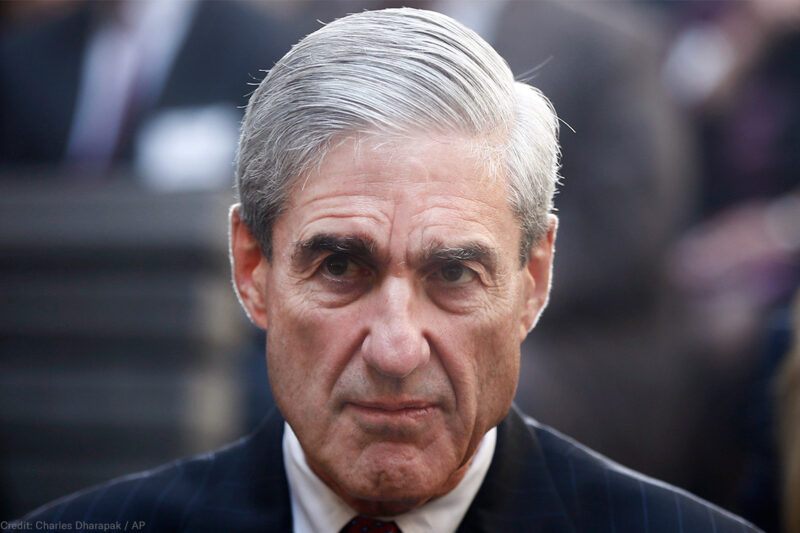
Special Counsel Robert Mueller’s long-awaited report, released to the public in a redacted version on April 18, lays out in meticulous detail both a blatantly illegal effort by Russia to throw the 2016 presidential election to Donald Trump and repeated efforts by President Trump to end, limit, or impede Mueller’s investigation of Russian interference. Trump’s efforts included firing or attempting to fire those overseeing the investigation, directing subordinates to lie on his behalf, cajoling witnesses not to cooperate, and doctoring a public statement about a Trump Tower meeting between his son and closest advisers and a Russian lawyer offering compromising information on Hillary Clinton.
Attorney General William Barr, who has shown himself to be exactly the kind of presidential protector Trump wanted Jeff Sessions to be, did his best to whitewash the report. Almost four weeks before it was released to the public, Barr wrote a four-page letter to Congress purporting to summarize its findings. But as The New York Times’s Charlie Savage has shown, in the letter Barr took Mueller’s words out of context and omitted all mention of the damning evidence that courses through the report.* Just before releasing the report to the public, Barr also held a press conference in which he again distorted its conclusions, stating that it found no collusion with the Russians and no obstruction of justice by the president. Both statements are profoundly misleading.
The Mueller report did not address “collusion,” a term that has no legal definition, but the narrower question of criminal conspiracy. It found no evidence that Trump campaign officials conspired with the Russians’ disinformation campaigns or hacking of computers belonging to the Democratic National Committee and the Clinton campaign. But it describes extensive contacts between the Trump campaign and the Russians, many of which Trump campaign officials lied about. And it finds substantial evidence both “that the Russian government perceived it would benefit from a Trump presidency and worked to secure that outcome, and that the Campaign expected it would benefit electorally from information stolen and released through Russian efforts.” Russian intelligence agency hackers targeted Hillary Clinton’s home office within five hours of Trump’s public request in July 2016 that the Russians find her deleted e-mails. And WikiLeaks, which was in close touch with Trump advisers, began releasing its trove of e-mails stolen by the Russians from Clinton campaign chairman John Podesta one hour after the Access Hollywood tape in which Trump bragged about assaulting women was made public in October 2016.
Trump has repeatedly dismissed the investigation as a “witch hunt.” But Mueller found “sweeping and systematic” intrusions by Russia in the presidential campaign, all aimed at supporting Trump’s election. He and his team indicted twenty-five Russians and secured the convictions or guilty pleas of several Trump campaign officials for lying in connection with the investigation, including campaign chairman Paul Manafort, top deputy Rick Gates, campaign advisers Michael Flynn and George Papadopoulos, and Trump’s personal lawyer Michael Cohen. Trump’s longtime friend Roger Stone faces multiple criminal charges arising out of his attempts to conceal his contacts with WikiLeaks. If this was a witch hunt, it found a lot of witches...
Read the full piece in The New York Review of Books here.
Stay informed
Sign up to be the first to hear about how to take action.
By completing this form, I agree to receive occasional emails per the terms of the ACLU's privacy statement.
By completing this form, I agree to receive occasional emails per the terms of the ACLU's privacy statement.

